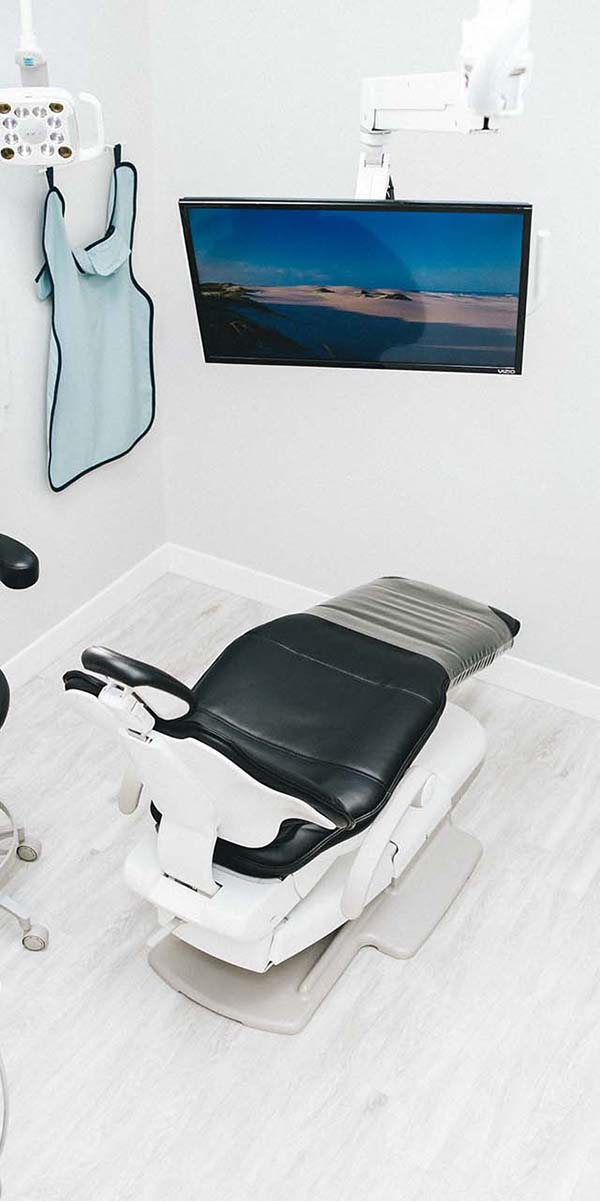Sedation Dentistry
Relax, We’re Here to Help
For people who have an intense fear of dentistry or who are highly sensitive, sedation options are available to help you or your child relax during a procedure. Our goal is to make your visit as painless as possible—less stressful, less traumatic, and less lengthy.
Sedation dentistry can be applied to anything from simple teeth cleanings to more invasive procedures. The type of sedation will depend on the procedure, your medical history, and the severity of the anxiety.
Dr. Bajwa is specially trained in techniques such as nitrous oxide sedation and oral conscious sedation, enabling our Surrey dentist to offer a broader range of safe and effective sedation options than other local dental clinics.
Sedation Dentistry Types & Techniques
Nitrous Oxide Sedation
Known as “laughing gas”, this is a mild sedative that’s inhaled throughout the procedure to induce relaxation and reduce pain with few side effects. Nitrous oxide can evoke a sense of well being while relieving anxiety.
It has been safely used by dentists and medical professionals for many years.
Oral Conscious Sedation
This is a mild to moderate sedative option (in pill or liquid form) taken usually one hour before the procedure to make you drowsy or groggy, and dulling the senses. Most patients cannot remember pain, smells or noises associated with the procedure.
Oral conscious sedation is a great choice for people who fear needles.
Other techniques to increase your level of comfort include:
- Separate treatment rooms with high ceilings – Increases privacy and limits exposure to other patients undergoing procedures.
- Comfort aids – Heated blankets, pillows and aromatherapy (optional) help soothe frazzled nerves.
- Music and headphones – Relaxing music or your favourite songs serve to both calm the mind and drown out dental ‘noise’.
- Entertainment – Light or humourous shows on our Netflix feed will help distract you from the work being done on your teeth.
- Advanced dental technology – Digital X-Rays, soft tissue laser, intra oral camera, Velscope oral cancer detection, create more efficient and less intimidating visits to the dentist.
Besides sedation, for most treatments you will also receive a local anesthetic to relieve any discomfort. This numbing medication can be administered as a ‘block injection’, which numbs the entire mouth; or as an ‘infiltration injection’ to numb a smaller area.
Be sure to communicate your fears and past experiences to us in advance, so we can better prepare and make your visit to the dentist more enjoyable.
Sedation Dentistry for Kids
Dr. Bajwa offers sedation options for kids that have a fear of being at the dentist or may have a hard time sitting still for a procedure.
- For children under age 12 – nitrous oxide inhalation is available.
- For children ages 12 and over – oral sedation and/or nitrous oxide is available.
If you know your child will not respond well to these calming methods, or requires deeper sedation, we are able to refer you to specialist. When we discuss your child’s health and needs together before his or her procedure, we may determine that a pediatric dentist is needed.
A personal consultation with Surrey sedation dentist Dr. Bajwa will help determine the best type of sedation for you or your child.

Is dental phobia an actual disorder?
Yes, dental phobia is estimated to affect 10-20% of Canadians. Millions of people in North America do not visit the dentist office because they are afraid, which has contributed to the development of the area sedation dentistry. At least half of patients have some other reservation or negative response about going to the dentist, which also may produce anxiety.
What type of sedation is available for children?
Children under 12 years old may receive nitrous oxide gas (“laughing gas”) to help with sedation. Children ages 12 and older may receive laughing gas in combination with an oral sedative (such as Ativan or Valium) in order to provide a stress-free experience for you and your child.
Dentists must meet specific requirements around the safe use of sedation in children, including standards outlined by the College of Dental Surgeons of British Columbia.
As a family dentist, Dr. Bajwa and his team are very experienced in treating kids and understanding their behaviour.
What are the side effects of conscious sedation?
After the use of oral conscious sedation, there may be a brief period of amnesia. Other side effects may include nausea, a headache, a sense of feeling jet-lagged or tired, and/or limited memory of the dental procedure.
Contact us and one of our friendly staff will respond within 24 hours to set up an appointment
Contact us Today

